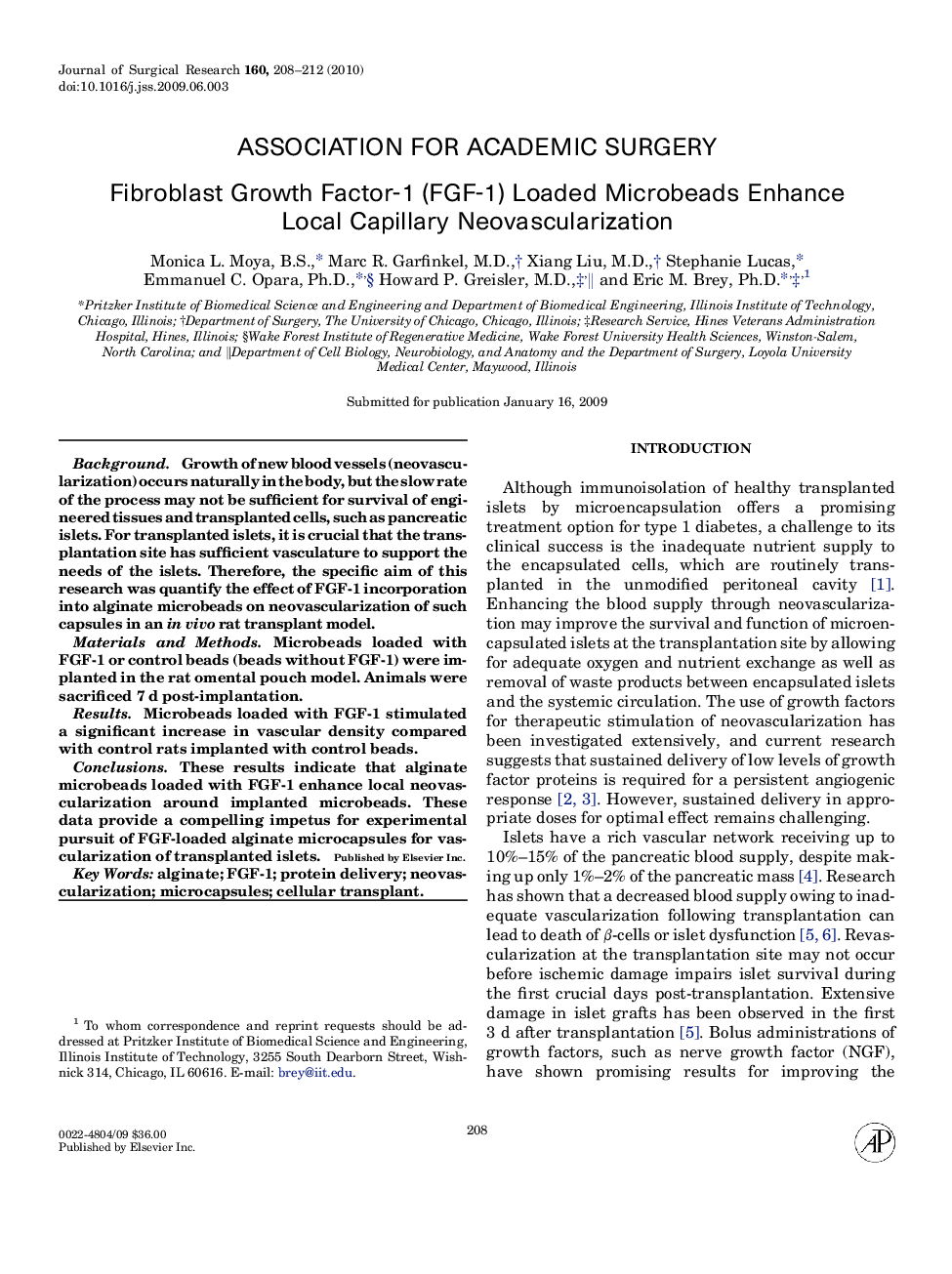| Article ID | Journal | Published Year | Pages | File Type |
|---|---|---|---|---|
| 4303102 | Journal of Surgical Research | 2010 | 5 Pages |
BackgroundGrowth of new blood vessels (neovascularization) occurs naturally in the body, but the slow rate of the process may not be sufficient for survival of engineered tissues and transplanted cells, such as pancreatic islets. For transplanted islets, it is crucial that the transplantation site has sufficient vasculature to support the needs of the islets. Therefore, the specific aim of this research was quantify the effect of FGF-1 incorporation into alginate microbeads on neovascularization of such capsules in an in vivo rat transplant model.Materials and MethodsMicrobeads loaded with FGF-1 or control beads (beads without FGF-1) were implanted in the rat omental pouch model. Animals were sacrificed 7 d post-implantation.ResultsMicrobeads loaded with FGF-1 stimulated a significant increase in vascular density compared with control rats implanted with control beads.ConclusionsThese results indicate that alginate microbeads loaded with FGF-1 enhance local neovascularization around implanted microbeads. These data provide a compelling impetus for experimental pursuit of FGF-loaded alginate microcapsules for vascularization of transplanted islets.
